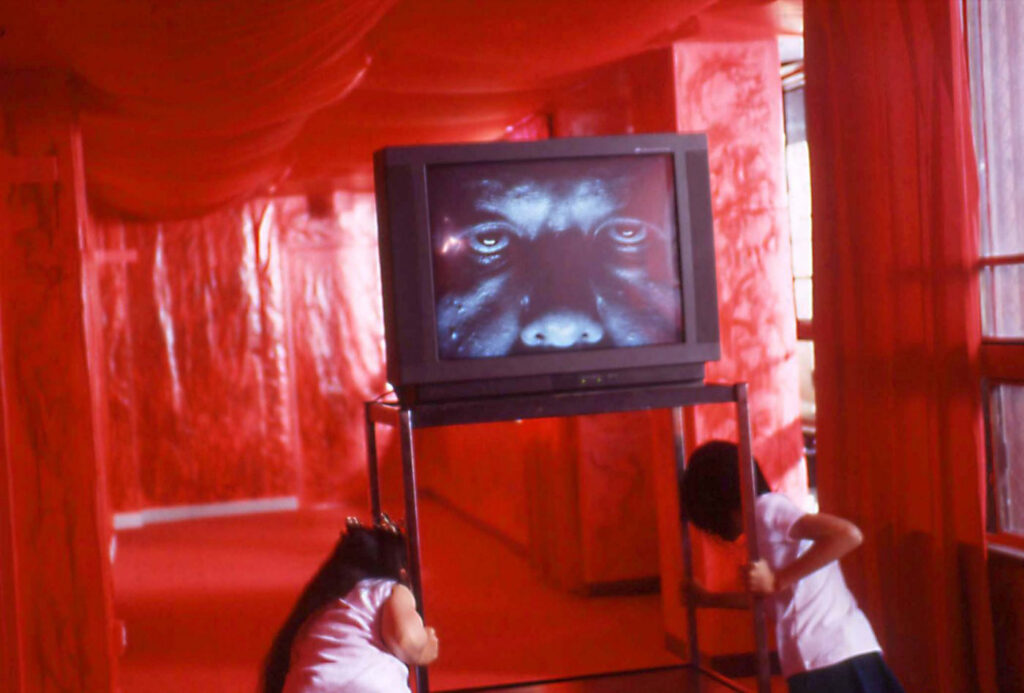Pull any Sion Sono movie off the shelf and chances are somebody somewhere has called it his “most extreme.” With a filmography as pervasively perverse and profane as Sono’s, one could place such a distinction on almost any title and probably be correct in saying so. But there’s something uniquely twisted about the feverish Strange Circus, Sono’s 2005 exercise in ero-guro, a Japanese art style that trades in sexual depravity and violence. The word itself is a wasei-eigo, a Japanese combination of abbreviated English words: ero from “erotic” and “guro” from grotesque. Similarly, Strange Circus is a collision, a wild blend of the utterly obscene and the undeniably beautiful. Incest, rape, pedophilia, and self-mutilation are just a few of the taboo bases it covers, while at the same time exploring the very specific ideas of emotional transference and psychological displacement, innately spiritual procedures whose effects occasionally, in the most extreme of cases—there’s that phrase again—result in physical transformation. True to form, Sono’s depiction of this transformation is an act of bloodletting full of gore and cruelty; there’s also poetic use of Debussy and Franz Liszt, as well as some of the most elegant direction we’ve yet seen from the filmmaker. But that’s the thing with Sono: His art trumps his impulses.
Wanders from one nightmare to the next, taking daring leaps between time and space.
“When dad first molested me, that was the beginning of the end.” So begins the story of 12-year-old Mitsuko (Mai Takahashi), whose incestuous father (Hiroshi Ohguchi) dominates her life. In addition to being her guardian and abuser, he’s also the principal of her school, and it’s in his office where Mitsuko’s first molested. He modifies a cello case by drilling a peephole near the top and locks his daughter inside, where she’s forced to watch him have rough sex with her mother (Masumi Miyazaki), who is then placed in the cello herself and made to watch as her husband rapes their daughter. This decidedly disturbing scenario sets the stage for a personal saga that finds Mitsuko questioning the very idea of herself. “Mom and I looked exactly alike. I was her, and she was me,” she says, claiming that the first time she sees her parents have sex, it’s as if she’s having sex, too. Her mental lines are blurred, reflected in Sono’s hallucinatory treatment of reality. The movie wanders from one nightmare to the next, taking daring leaps between time and space while exploring Mitsuko’s fractured psyche. The film even seems to jump to another universe altogether: An erotic-fiction writer (Miyazaki) is writing a new novel seemingly based on Mitsuko’s life. Her murky past, as well as the identity of her assistant (Isseu Ishida), give the film the closest thing it has to a conventional plot line, but resolution is ever scarce. Strange Circus posits violence; quickly and thoroughly abstracts it; then forces it back into a space that seems neither real nor fake, both aggressively alive and slowly decaying. Sono shows us the unique ways violence and abuse transform life into myth, and how the whole thing feels, strangely, like a circus.


Comments are closed.